
Artificial Intelligence:
Artificial Intelligence is a rapidly evolving technology that empowers machines to mimic human intelligence and perform tasks that typically require human cognition. AI systems leverage algorithms, data, and learning models to analyze, interpret, and make decisions autonomously. From natural language processing and computer vision to machine learning and robotics, AI finds applications in various domains, including healthcare, finance, transportation, and entertainment. AI advancements have enabled virtual assistants, recommendation systems, and autonomous vehicles, transforming the way we interact with technology. As AI continues to progress, ethical considerations around data privacy, bias mitigation, and responsible AI deployment become increasingly important. Embracing AI responsibly has the potential to unlock groundbreaking innovations and enhance various aspects of human life.

Web 3:
Web3 is the next-generation internet that aims to decentralize the web, putting power back into the hands of users and creating a more open, transparent, and equitable digital ecosystem. Unlike the current Web2, where centralized platforms dominate and control user data, Web3 leverages blockchain technology to enable peer-to-peer interactions and secure data ownership.
At the core of Web3 is the concept of decentralized applications (dApps), running on blockchain networks, which eliminate the need for intermediaries. Smart contracts ensure trustless execution, enabling automated, tamper-proof agreements.
Web3 also introduces digital assets like cryptocurrencies and non-fungible tokens (NFTs), fostering new economic models and ownership structures. This paradigm shift in the internet ecosystem has implications for privacy, security, and user empowerment, allowing individuals to control their data and participate in decentralized communities, disrupting traditional business models and reshaping the future of the internet.
A like blog – Conch AI
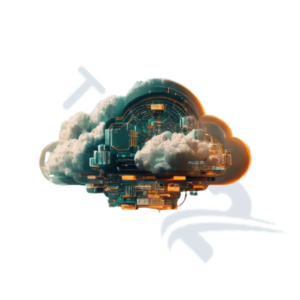
Cloud Computing:
Cloud computing involves delivering computing services over the internet, allowing users to access resources like servers, storage, databases, and software on-demand.
The cloud’s key advantages include scalability, flexibility, cost-effectiveness, and ease of use. Users can scale resources up or down based on their needs, pay only for what they use, and avoid the expenses associated with maintaining physical infrastructure.
Cloud computing also enables collaboration, remote work, and seamless data sharing. It has become the backbone of numerous industries, from startups to multinational enterprises, offering a more agile and efficient approach to IT infrastructure.
However, cloud computing raises concerns about data security, privacy, and dependency on third-party providers. As the technology continues to evolve, addressing these challenges will be crucial in unlocking its full potential and ensuring a sustainable digital future.
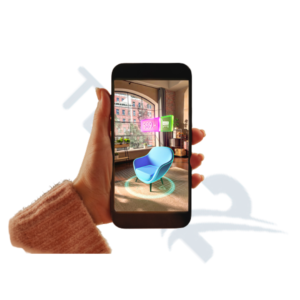
Augmented Reality:
Augmented Reality (AR) is a cutting-edge technology that seamlessly blends the digital world with the physical environment, enhancing our perception and interaction with the surroundings. AR overlays virtual elements, such as images, graphics, and animations, onto the real-world environment in real-time, typically through a smartphone, tablet, or AR glasses.
It offers immersive experiences and interactive learning opportunities, enabling users to visualize complex concepts and data. In gaming, AR has revolutionized the way we play, merging virtual and real-world environments.
Additionally, AR has practical uses, such as assisting in navigation, providing real-time information, and enhancing retail experiences. As technology advances, AR is expected to play an increasingly significant role in our lives, transforming how we interact with the world around us and opening up new possibilities for innovation and creativity.
A like post – What is a digital certificate?
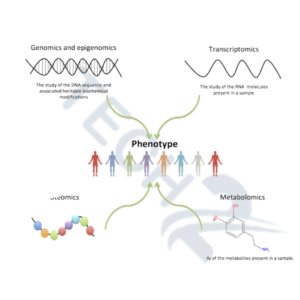
Genomics:
Genomics is the branch of molecular biology that focuses on the study of the entire genetic material of an organism, including its DNA sequence and structure. It involves analyzing the genomes of various organisms to understand their genetic makeup, gene functions, and evolutionary relationships. Genomics plays a crucial role in diverse fields, from medicine and agriculture to biotechnology and environmental science.
With the advancement of technology and high-throughput sequencing methods, genomics has revolutionized our understanding of genetic variations and their implications for human health and disease. It has enabled personalized medicine, where treatments can be tailored to an individual’s genetic profile, leading to more effective and targeted therapies. In agriculture, genomics has improved crop breeding and disease resistance, enhancing global food security. As genomics continues to evolve, it holds the promise of unlocking new discoveries and applications, shaping the future of biology and medicine.
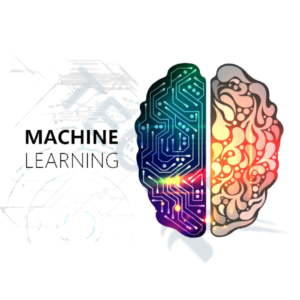
Machine Learning:
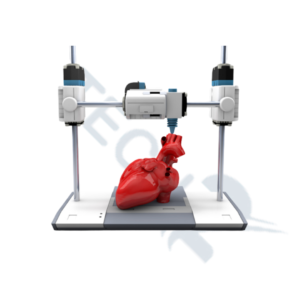
3D Printing:
3D printing, also known as additive manufacturing, is an innovative technology that creates three-dimensional objects by layering materials, typically in a digital file format. It has transformed traditional manufacturing processes, offering faster prototyping, cost-effectiveness, and design flexibility.
The process involves slicing a digital model into thin layers, and the 3D printer deposits successive layers of material (plastic, metal, resin, etc.) to build the final object. 3D printing has diverse applications across industries, including aerospace, healthcare, automotive, architecture, and consumer goods.
In healthcare, 3D printing has enabled the production of personalized medical devices, prosthetics, and surgical models. In aerospace, it facilitates lightweight and complex component manufacturing. Additionally, 3D printing contributes to sustainable practices by minimizing material waste.
As the technology advances, 3D printing holds the potential to revolutionize industries further, accelerating innovation and customization while driving sustainability in manufacturing processes.
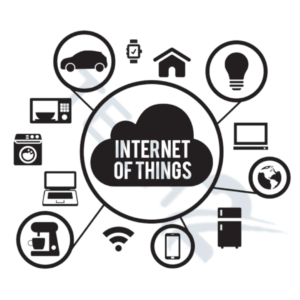
Internet of Things (IoT):
The Internet of Things (IoT) is a transformative concept that connects everyday objects and devices to the internet, enabling them to collect, exchange, and analyze data. This interconnected network allows for seamless communication between physical objects and the digital world, creating a smart and interconnected ecosystem.
IoT has vast applications across various sectors, including healthcare, agriculture, transportation, and smart homes. It facilitates real-time monitoring and automation, improving efficiency, productivity, and convenience.
In healthcare, IoT devices enable remote patient monitoring and data-driven treatment plans. In agriculture, IoT sensors optimize irrigation and crop management. In smart homes, IoT devices control appliances, lighting, and security systems, enhancing energy efficiency and user experience.
As IoT technology evolves, concerns related to data security, privacy, and interoperability must be addressed. However, embracing IoT responsibly has the potential to revolutionize industries, transforming the way we live, work, and interact with our environment.
